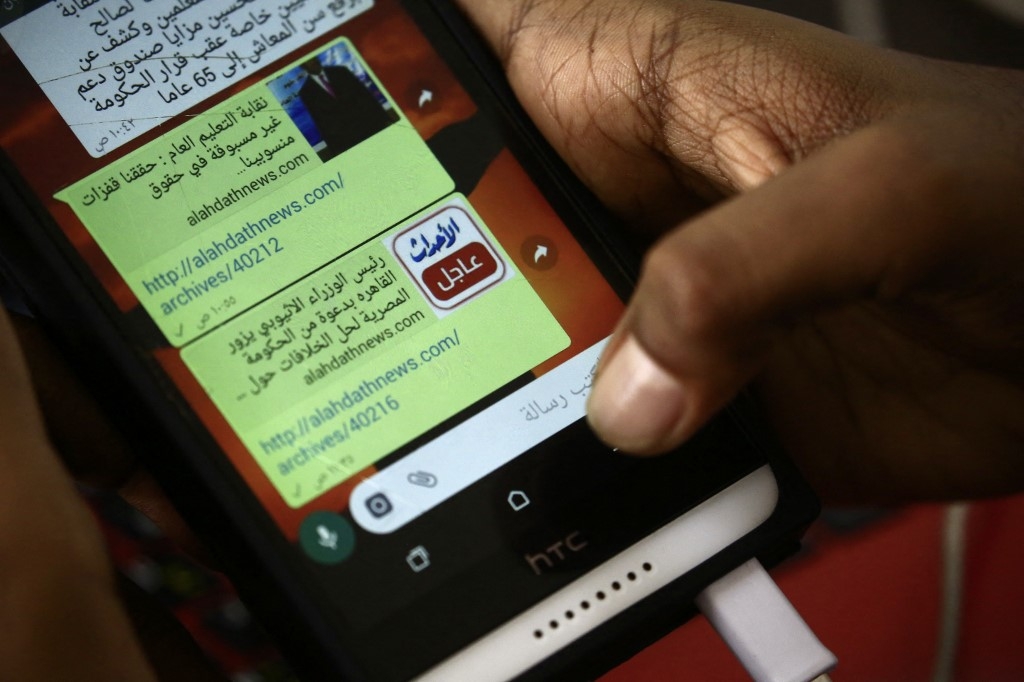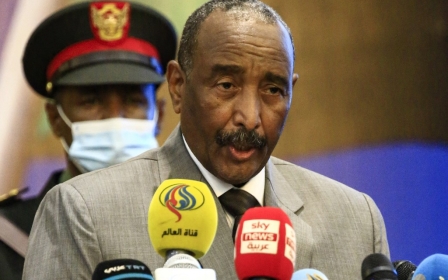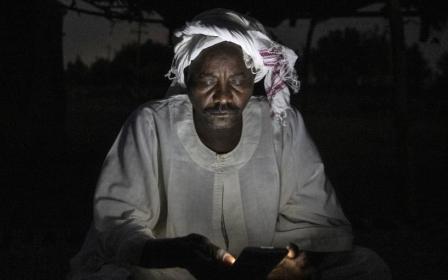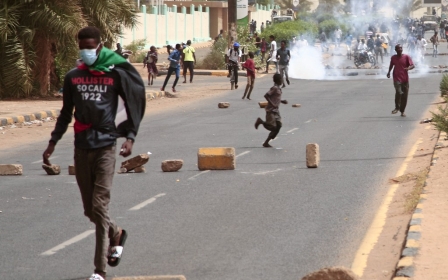Sudan coup 2021: Internet 'severely disrupted' after military takeover

Internet services in Sudan have been "severely disrupted" since military forces arrested the country's prime minister in an overnight raid and declared a state of emergency early on Monday, a UK-based internet monitor said.
NetBlocks, an internet monitor based in London, said that connectivity had flatlined to 24 percent, the "most severe blackout" since security forces killed more than 100 civilians during pro-democracy protests in June 2019.
New MEE newsletter: Jerusalem Dispatch
Sign up to get the latest insights and analysis on Israel-Palestine, alongside Turkey Unpacked and other MEE newsletters
The monitor said that data it had collected on Monday corroborated reports of network disruptions that appeared to be "consistent with an internet shutdown".
"The disruption is likely to limit the free flow of information online and news coverage of incidents on the ground," NetBlocks said in a statement.
Amr Magdi, a researcher at Human Rights Watch, warned that there should be concern over the internet connectivity drop.
'When governments (military indeed) cut Internet, bloodshed should be feared imminent[ly]," Magdi tweeted. "No good people rule in the dark."
Internet was last cut off in Sudan on 3 June 2019 after Sudanese forces killed at least 128 people while dispersing a sit-in in the heart of the capital Khartoum.
The county had experienced earlier shutdowns as protests moved to unseat autocratic ruler Omar al-Bashir, but they were particular extensive after the massacre and continued for several weeks afterwards.
Sudanese activist Hatim Eujayl told Middle East Eye in 2019: “The information we lost as a result of the shutdown mostly had to do with the exact nature of the massacre, the details."
The internet blackout had long-term consequences on the public perception of the massacre and was used to “campaign in rural areas and amplify anti-revolutionary state propaganda”, he said.
State propaganda said the demonstrators had been engaged in “illegal” activity, Eujayl said. In a village in central Sudan, for example, he said residents had no idea about the scale of the death toll.
An estimated 30 percent of Sudan’s 45 million population has internet access.
Middle East Eye delivers independent and unrivalled coverage and analysis of the Middle East, North Africa and beyond. To learn more about republishing this content and the associated fees, please fill out this form. More about MEE can be found here.





